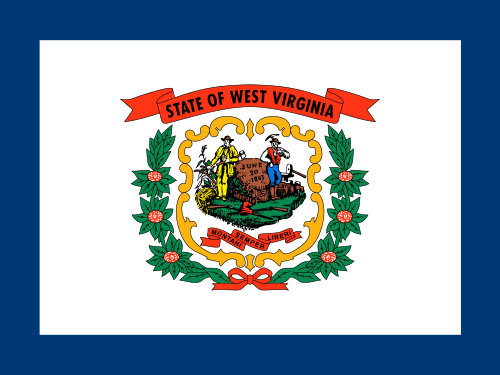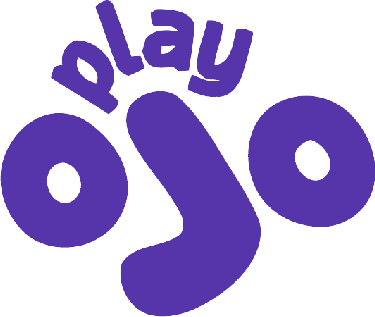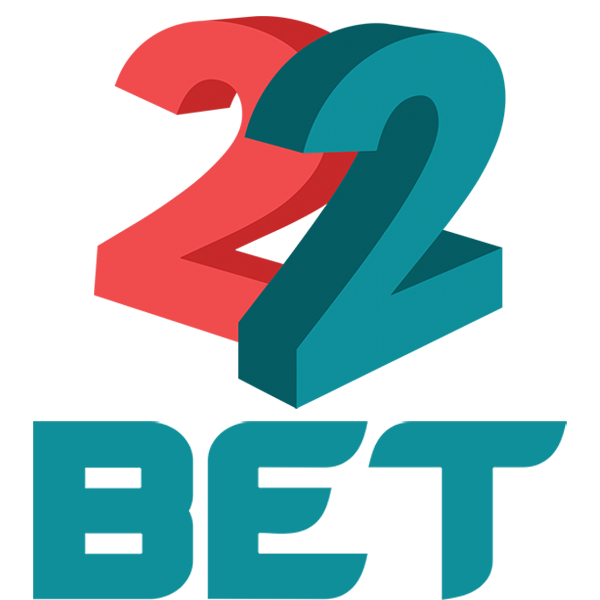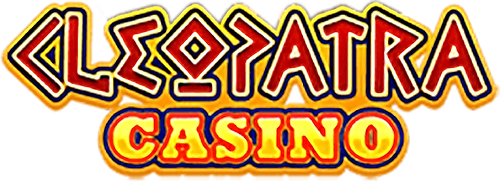-
Casinos for you

West Virginia
West Virginia offers a top of the line gambling experience in both bars and land-based casinos within the state. From video lottery at bars and racinos to charity bingo, residents are spoiled for choice near the borders of the state.Profile
Land Based Gambling Allowed in Casino, Sports Betting, Poker, Bingo, Lottery, Horse RacingOnline Gambling Allowed in Bingo, DFSMin Age 18-21Number of Land Based Casinos 5Number of Poker Rooms 5Popular Land Based Casinos Hollywood Casino, Mardi Gras Casino, Mountaineer Casino, Wheeling Island Casino, Casino Club at GreenbrierPari-Mutuel YesSmoking Ban NoneEstimated Tax Revenue from Gambling $385MEstimated Gambling Revenue $1BLand Based Gambling
Casino
Regulated Since: 2008
Gambling Age: 21
Sports Betting
Regulated Since: 2018
Gambling Age: 21
Poker
Regulated Since: 2008
Gambling Age: 21
Bingo
Regulated Since: 1980
Gambling Age: 18
Lottery
Regulated Since: 1984
Gambling Age: 18
Horse Racing
Regulated Since: 1931
Gambling Age: 18
Dog Racing
Online Gambling
Online Casino
Online Sports Betting
Online Poker
Online Bingo
Regulated Since: 0
Gambling Age: 0
eSports Betting
DFS
Regulated Since: 0
Gambling Age: 18
Overview
West Virginia offers a top of the line gambling experience in both bars and land-based casinos within the state. From video lottery at bars and racinos to charity bingo, residents are spoiled for choice near the borders of the state.West Virginia has been pioneers within the United States and has paved the way for many forms of gambling since the 1930s. Starting with the legalization of horse racing, but then taking another 50 years to add bingo and the lottery, West Virginia has been making up for lost time to ensure the residents can pick their favourite game of chance.
With an estimated gambling revenue of around $1,000,000,000 per year, the legalization of these games of chance has helped the state in terms of job creation and tourism opportunities.
At a time when Ohio, Pennsylvania and Maryland didn’t have much to choose from when it came to gambling for real money, West Virginia legalized convenience video poker at their bars and racetracks and opened full-service casinos.
These were then frequented by residents from out of state due to the locations of the casinos close to state borders. Even today, visitors from Kentucky and Virginia often pop over the border to visit a West Virginia casino since their states don’t offer the same services.
The West Virginia Lottery offers interstate drawings of PowerBall and MegaMillions as well as a few instant game options like scratch-offs.
Charities can spread bingo and raffles with the necessary licensing.
Video lottery terminals can be located in bars, gas stations or restaurants as long as it is at least 150 feet from another virtual lottery terminal and must be more than 300 feet away from churches, public parks or daycare centres, or it is housed within a building that already has a video lottery license.
These terminals can offer video poker, keno and slots but are not allowed to look or sound like a casino in its name or branding.
There a few racinos within the state offer these terminals but also offer other casino games like Blackjack, Poker, Craps, Roulette and pari-mutuel betting on horses. Off track betting is the only online gambling option available in West Virginia and there doesn’t seem to be any movement on the horizon for the legalization of more online gambling options.That said, as more and more states are looking at updating their statutes and evolving their ideas around gambling, we may well see a change taking place over the next few years.
Regulation
According to West Virginia statute 61-10-5 - Betting on games of chance; furnishing money or thing of value, therefore; penalty:
“If any person at any place, public or private, bet or wager money or other thing of value on any game of chance, or shall knowingly furnish any money or other thing of value to any other person to bet or wager on any such game, he shall be guilty of a misdemeanor, and, upon conviction, shall be fined not less than five nor more than three hundred dollars, and shall, if required by the court, give security for his good behavior for one year, and in default of the payment of such fine and the costs and the executioof such bond, if such bond be required, shall be imprisoned in the county jail not less than ten nor more than thirty days.”
As with most states within the US, the law comes down harder on individuals attempting to profit from gambling and turn it into an illicit business than those who just enjoy the occasional wager.Being busted for having illegal gambling machines or offering gambling in an unlicensed establishment will earn you hefty fines or jail time.
The law also specifies that if you act as a doorkeeper for illegal gambling operations, you too could find yourself in jail - statute 61-10-3.
Placing bets on games of skill can find the bookmaker on the wrong side of the law as this is also illegal within the State of West Virginia - statute 61-10-10 with similar fines and jail time if prosecuted.
On the surface, West Virginia seems very liberal when it comes to playing games of chance however, the laws indicate a very conservative approach.
Home poker games are considered to be illegal too and the organizer and players can find themselves on the wrong side of the law with fines or jail time, even if the organizer doesn’t profit from the game.
Even charitable gambling is carefully controlled, and non-profit organizations need to heed detailed requirements like the submission of the annual license application at least 60 days before their first event.
Once the license has been issued, the non-profit organization then needs to submit quarterly reports for occasional licenses, or annual financial reports for longer-term licenses within 30 days of license expiration disclosing how much was raised and proof of how much was transferred to the organization that the fund-raising was held on behalf of.
Licensing
In West Virginia, the two main gambling licenses applied for are to offer virtual lottery terminals within their businesses, or a license to offer charity gambling for non-profit fundraising.
Your application to offer virtual lottery terminals within your business is managed by the West Virginia Lottery and essentially invites inspection of your business by a West Virginia Lottery Licensing Specialist.
Your license will only be granted if your establishment is not within 150 feet of another business that has a virtual lottery terminal on site, and if your business is located within 300 feet, in a straight line, of a public park, school or church.
Also, the application process will require disclosure of personal, financial and business history on a federal level and this, together with fingerprints and a non-refundable $500 application fee will get the process started.
Charitable gambling is legal in the State of Virginia for fundraising for nonprofit and public service organizations. Charities are allowed to spread raffles and host bingo as long as they are not offered more than any other day, except on weekends, to raise funds for public causes like schools, nature conservation and the like.
Before approval, expect to have your business scrutinized so it is best to have all your affairs in order.
As with any license application, skeletons in your personal or business closest will be visited and questioned. Essentially, if you have any criminal history or you’ve made any poor financial choices in the past, this will not be looked on favourably, especially if you don’t disclose it ahead of time.
If your organization wants to sell or distribute games or raffles within the State of West Virginia, you will be required to make an application to the Tax Commissioner. Once approved, your organization will be required to pay a 20% tax on all sales of games within the state.
Given the harsh penalties associated with illegal gambling and being caught running an illicit gambling business, it is best to apply for the necessary licenses and ensure that you are on the right side of the law at all times.
Casinos and Gambling Facilities in West Virginia Gambling?
FAQ
Is gambling legal in West Virginia?Yes, at brick and mortar casinos and racinos and charity gambling like raffles and bingo.Where can I gamble for real money?There are 7 casinos within the State of West Virginia.Which games can I play at West Virginia casinos?Slots, video poker, live poker, electronic table games, blackjack, craps, roulette, Let it Ride, Big 6 Wheel, baccarat, Pai Gow Poker, Ultimate Texas Hold’em and Let it Ride can be played here.How old do I need to be to gamble in West Virginia?At least 18 years old for bingo, lottery, and racing. To play Video lottery and visit the racino you need to be 21 years old.Can I play live poker in West Virginia?Yes, you’ll find poker rooms at the casinos.Is online gambling legal in West Virginia?No.Is online poker or sports betting legal in West Virginia?The government is currently in discussion around possible legalization.Are daily fantasy sports contests legal in West Virginia?Not at the moment but some discussions indicate that this may change in the future.What is the West Virginia Video Lottery?You can play video poker, slots and keno using virtual lottery terminals located in licensed venues like bars, restaurants and gas stations around the state.Can you play online casinos?No, but many residents make use of off-shore casino sites.
-
CASINOS
- Popular
- Specialty
- Features
- Casinos By
-
BONUSES
- Popular
- By Type
-
GAMES
-
Slots
- Popular
- By Software
- Variations
- Features
-
Blackjack
- Popular
- Variations
- Features
-
Roulette
- Popular
- Variations
- Features
-
Video Poker
- Popular
- Variations
- Features
-
Craps
- Popular
- Features
-
Baccarat
- Popular
- Features
-
Poker
- Popular
- Variation
- Features
-
More Games
- Keno
- Bingo
- Fixed Odds
- Other Games
-
JACKPOTS
- Popular
- By Game
- By Software
-
COMMUNITY



.png.0f651d9e8ab97819d8e6bcc89d162b26.png)

.png.a0acfd195007976e042ec7e6bcc699bc.png)




